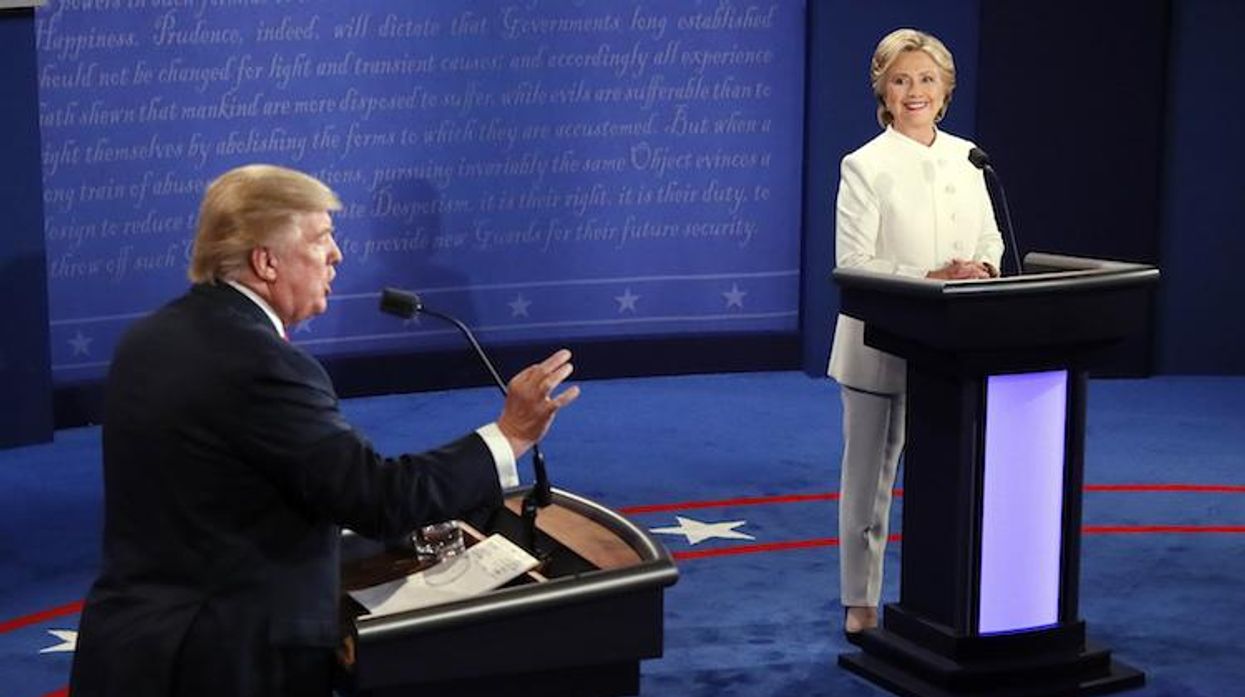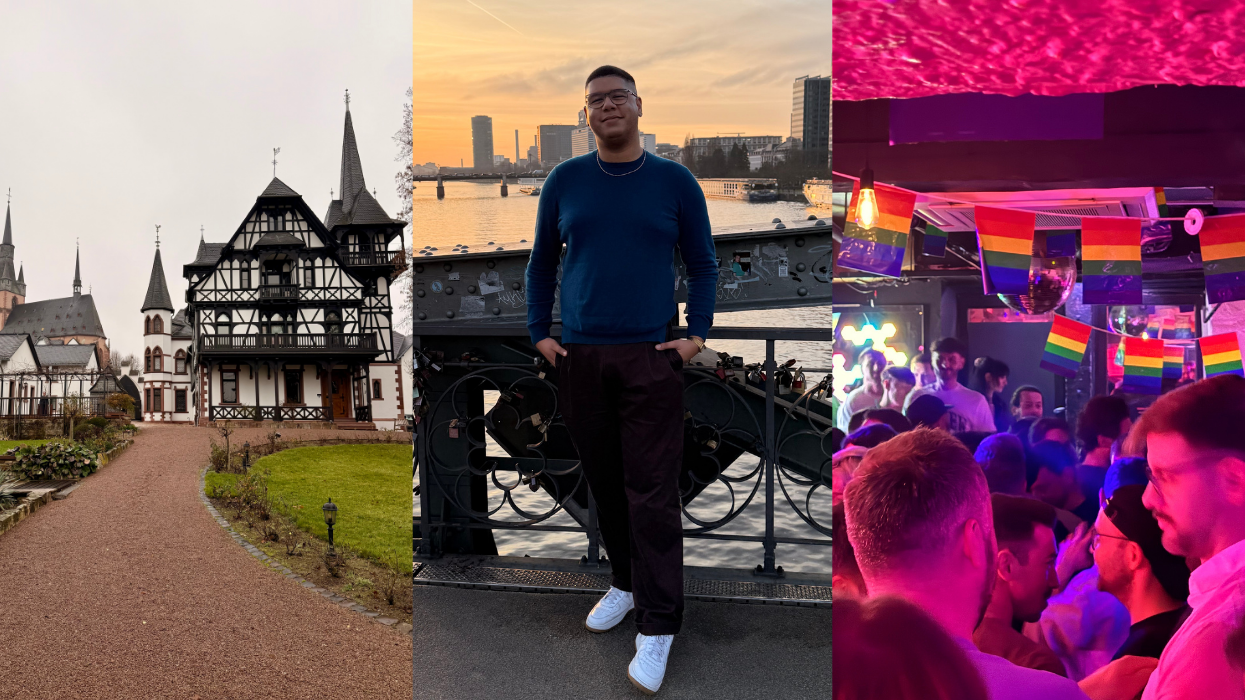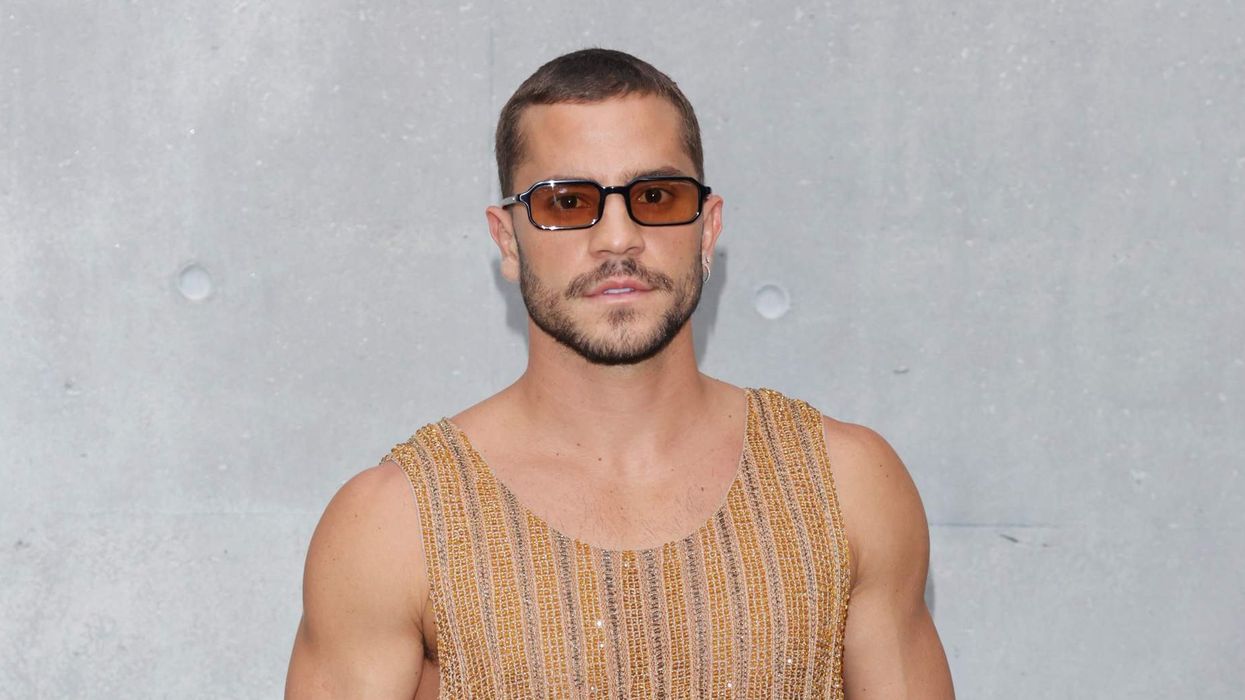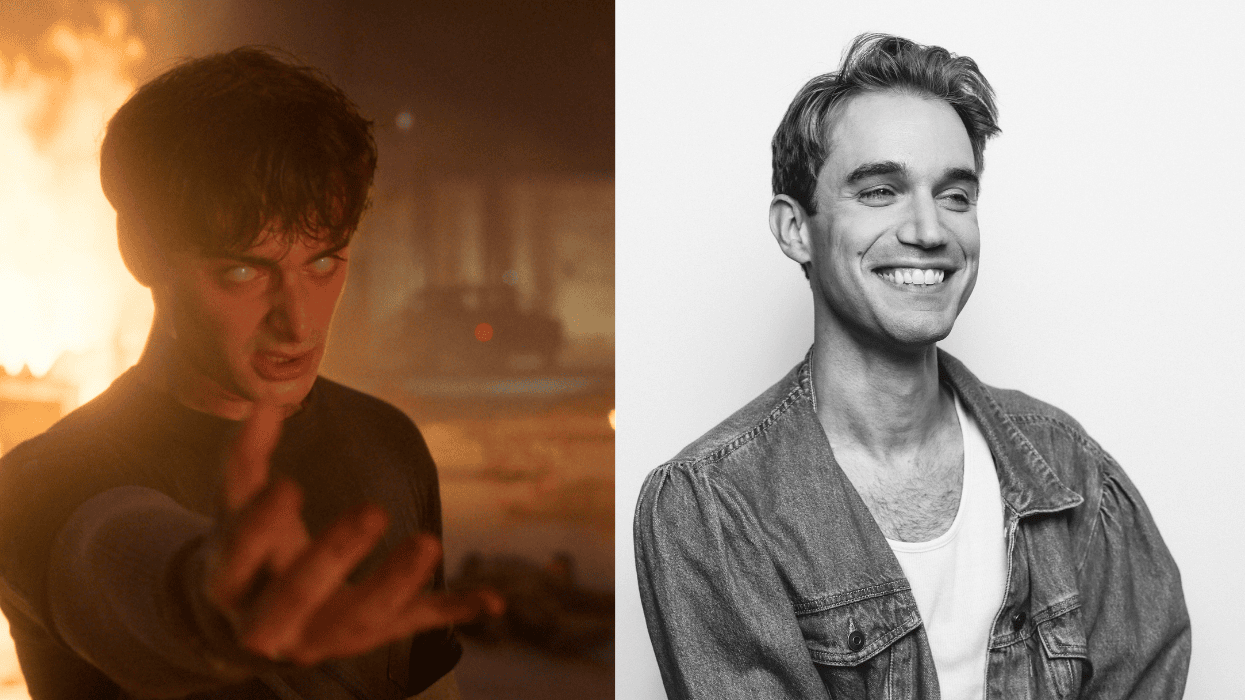Donald Trump and Hillary Clinton shared the debate stage for the last time Wednesday night. During the final debate of the 2016 presidential election, both candidates made their pleas to undecided and swing voters. Clinton and Trump hammered away at each other throughout the night, but they started the evening with a nod to LGBT rights--the first significant appeal to queer voters during the entire debate season.
The candidates' remarks on LGBTs were restricted to the opening question about the Supreme Court, where a vacancy left by the death of Antonin Scalia could reorient the direction of the court. When talking about the Supreme Court, Clinton said she supported a court "that will stand up on behalf of women's rights, on behalf of the rights of the LGBT community." She also added that "we not reverse marriage equality."
For his part, Trump finally mentioned LGBTs outside his convention acceptance speech in July. He called out Clinton on her and her husband's foundation accepting donations from Saudi Arabia, Qatar, and other Middle Eastern countries. "So these are people that push gays off business--off buildings," he said. "These are people that kill women and treat women horribly. And yet you take their money."
And--that was it.
It's disappointing that so little has been said during these debates about LGBT rights, but perhaps more disappointing is what has been said on stage. While Clinton has defended the Equality Act--the bill before Congress that would add sexuality and gender identity protections to the Civil Rights Act--in other arenas, she failed to use her national stage and elevate the issue of workplace and housing discrimination facing queer people. She and running mate Tim Kaine reduced their debate message to a nebulous generalization of "LGBT rights," as if this were effective catch-all. It's not.
On the other hand, Trump seems only capable of thinking of LGBTs in terms of Islamic terrorism. His convention appeal to LGBTs proved just that, and his follow-up last night about gays being pushed off buildings further proves that, at best, he merely considers gays and lesbians as victims. At worst, he could be following the lead of his running mate, Mike Pence, who staunchly opposes any advancement for LGBTs and even considered us unfit for jobs.
The lack of national dialogue from our presidential candidates represents a new complacency on LGBT rights. Eighteen months after Obergefell v. Hodges, straight political allies seem to rest on the laurels of marriage equality--even though local judges still refuse to marry same-sex couples. The freedom to love does not translate to the freedom to live. Housing, employment, health care, hate crimes--LGBTs disproportionately endure hardships to achieving their dreams in this country. We're more than brides and grooms; we're more than victims of religious extremism. We have lives. We should have presidential candidates who acknowledge that.






























